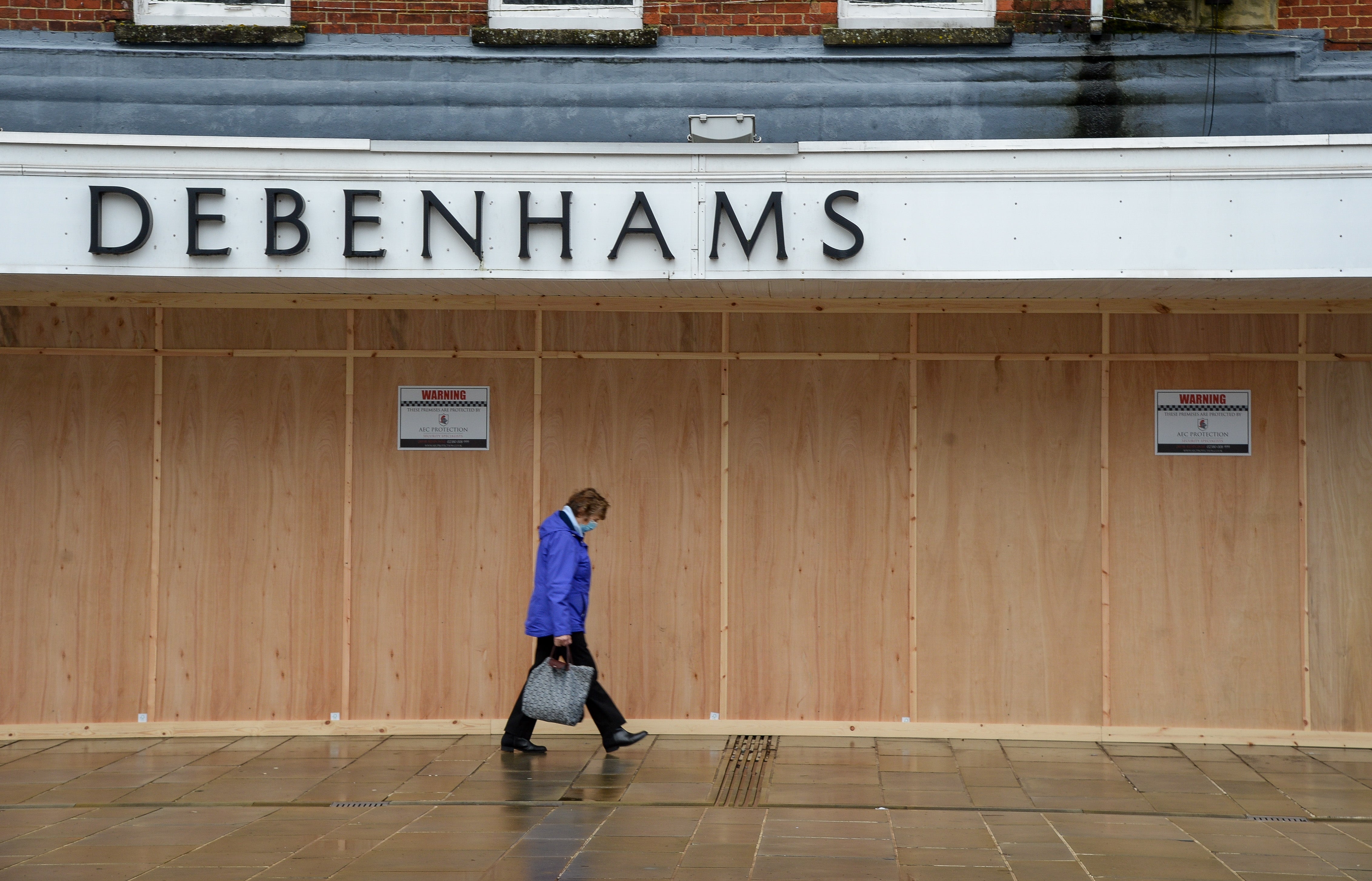The high street is dying – it’s time to stop pretending otherwise
The entire sector is on the verge of collapse – No 10 must stop the delusion that this is a crack that can just be painted over, writes Chris Blackhurst


Every crisis has a pivotal moment, the point when the gravity of the situation hits home.
With our high streets, it was the news breaking that Boohoo was buying Debenhams. Fantastic, slaps on the back all round, that’s 124 stores and 12,000 jobs saved. No, hang on a minute, the fast fashion online purchaser doesn’t want the shops and employees, all Boohoo desires is the name and a website that gets 300 million visits a year.
It’s the same with Arcadia as well. Boohoo is in exclusive talks to buy the ailing retail company’s Dorothy Perkins, Wallis and Burton brands. Another internet success, Asos, is chasing Arcadia’s Topshop, Topman, Miss Selfridge and HIIT for £300m. Again, neither of them are interested in the bricks and mortar outlets, a staple all over the land, and the staff. It’s the brand names and the websites they’re after, that is all.
This is it now – it’s the awful prognosis, the final rejection, the filing of divorce papers, the realisation you’re driving a car that is going to crash. There’s no going back, no stopping. Surely, the government and councils everywhere should cease the delusion, stop kidding themselves and us that all this is a minor blip, that our town centres and shopping malls are going to be alright really. The Debenhams and Topshop experiences tell us different. They’re saying that in its present form, the high street does not have a sustainable future.
We can argue about the reasons. We can accuse Sir Philip Green and his family of displaying appalling greed and extracting more than £1bn in dividends from their ownership of Arcadia. Likewise, we can jab a finger at the City slicker firms behind Debenhams, at CVC, TPG and Merrill Lynch for taking out more than £1bn in a sale and leaseback deal, then shoving the department store chain’s shares on to a stock market that wasn’t interested.
We can have a moan about the Arcadia and Debenhams administrators and maintain they could have done better. Really? That’s what was out there, that was all they could get – face it, nobody wants the traditional street presence.
This has got nothing to do with Covid. Potential buyers were taking a longer view, beyond the present health crisis, which, hopefully is passing its peak. Of course, the pandemic has accelerated the decline, but the tills have only been silent for several months. They were looking further ahead, and they were not interested.
We’ve been here before – the Centre for Retail Research estimates 54 chains failed last year, among them Edinburgh Woollen Mill, Kath Kidston and Peacocks. Even a shopping centre operator Intu hit the buffers. They spoke for 5,214 shops and 109,407 jobs. More are set to follow this year.
The question that needs answering is, how bad does it have to get before the government decisively acts? Boris Johnson is very good at donning a hard hat and high vis jacket and visiting an engineering firm or posing for pictures at a laboratory in a white coat. But have you ever seen the prime minister standing in the increasingly desolate British high street, explaining what he is going to do about it?
Retail is the forgotten major conundrum – the one that is bubbling away, while we attend to Covid, Brexit and climate change. We require a plan, and we require it now. Promising high-speed train links and faster broadband only goes so far – what we’re facing here is the destruction of an entire sector at the heart of our way of life. Town and city centres are destined to be empty and abandoned and we’re doing precious little about it.
This is it now – it’s the awful prognosis, the final rejection, the filing of divorce papers, the realisation you’re driving a car that is going to crash
If he hasn’t already, and I somehow doubt he has, Johnson should commission an urgent study on what has occurred right across the UK where the middles of towns and cities are rundown and desolate. He should also ask what has happened to those people who would otherwise have been working in the shops now forlorn and shuttered.
We had too many shops, and some of our proprietors and landlords were plain greedy. We get that, but central and local government must look forward, not back. We need a proactive campaign to stop the rot. The time for believing we can paper over the cracks and pretend everything will be fine is over. Debenhams and Arcadia are testament to the seriousness and permanence of the change.
For years we’ve been talking about business rates and what an outdated, convoluted system it is. We need to simplify the tax, and reduce it, to attract new, start-up independent retailers. Councils must do everything they can to accommodate and encourage them.
Similarly, we’ve watched as Amazon and the other online retailers have taken over, and there have been endless discussions about imposing some sort of levy on them – and again, nothing has transpired. Start taxing them, as soon as possible.
These measures, vital as they are, will only go so far. We have to recognise as well that shoppers’ habits are changing – our high streets will never be like they were, we must accept that. But that does not mean they still can’t be vibrant districts at the heart of our communities, offering a variety of uses, in arts and craft, leisure, hospitality, shared working spaces and residential.
When someone turns round and says I don’t want the Debenhams stores and another says the same of Topshop, then you know you have a major problem. Prime minister, please do something.
Join our commenting forum
Join thought-provoking conversations, follow other Independent readers and see their replies
Comments



Bookmark popover
Removed from bookmarks